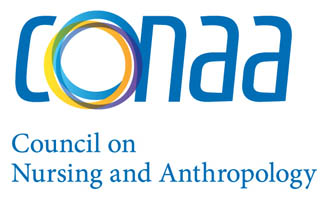An account is required to join the Society, renew annual memberships online, register for the Annual Meeting, and access the journals Practicing Anthropology and Human Organization
- Hello Guest!|Log In | Register
CONAA Members Reflect on Community Research in the Pandemic
 At the 2022 SfAA Annual Meeting, CONAA members who collaborate with partners in the community reflected on the unique challenges they faced during the COVID-19 pandemic in their ongoing research projects in and with communities, organizations, and special populations. They noted that continuing relationships were essential for sustained collaboration and achievement of the shared outcomes of these partnerships. In one panel, several members shared stories of the unique challenges, successes, adaptations and innovations they employed and how they could be applied in their future work. These Registered Nurses, cultural psychologists, and community health scientists collaborated with community-based organizations serving Indigenous communities, people with intellectual disabilities, people experiencing homelessness, people who have committed drug offences, and older black adults.
At the 2022 SfAA Annual Meeting, CONAA members who collaborate with partners in the community reflected on the unique challenges they faced during the COVID-19 pandemic in their ongoing research projects in and with communities, organizations, and special populations. They noted that continuing relationships were essential for sustained collaboration and achievement of the shared outcomes of these partnerships. In one panel, several members shared stories of the unique challenges, successes, adaptations and innovations they employed and how they could be applied in their future work. These Registered Nurses, cultural psychologists, and community health scientists collaborated with community-based organizations serving Indigenous communities, people with intellectual disabilities, people experiencing homelessness, people who have committed drug offences, and older black adults.
The challenges of conducting community-based research, which was primarily qualitative, included: lack of face-to-face access to key informants due to public health restrictions; increased demand on agencies and communities who prioritized safety over non-urgent research activities; decreased availability of participants facing health issues and new family and work life arrangements; loss of access to agencies for researcher and student embedding, familiarity and rapport building; difficulties with access to and use of communication technology; agency staffing changes impacting key partners; changes to institutional and community research ethics protocols; delayed project completion and completing requests for funding extensions; and need for adaptation of student projects due to fixed time pressures. New partnerships were particularly challenged, while existing collaborative structures were less vulnerable to disruptions.
Several key learning points and successes emerged through discussion during the panel:
-
Slowing down: Building authentic, trusting relationships with community members as an outsider requires significant time investment and a slow, steady pace. Pandemic delays forced academic researchers to slow down and fostered patience. The temptation for new researchers in particular to feel and express pressure to move quickly to collect data was prevented.
-
Respect for safety: Pausing or changing the mode of data collection to virtual, following pandemic protocols, and establishing consultation groups, demonstrated researcher respect, care and commitment to community members.
-
Being in this together: The pandemic conditions contributed to camaraderie between insiders and outsiders, since everyone was impacted, and researchers showed consideration for differential impacts on communities; both built a sense of shared experience.
-
Social connections: Some community-members appreciated the opportunity to be involved in adapted research activities when their usual social involvement was curtailed due to pandemic restrictions. Novel experiences such as advising, grant and publication writing were enjoyed.
-
Shifting priorities: Planned projects, such as data collection, were postponed and alternate projects became the focus, or new projects were initiated. In some cases, pandemic-related research was instigated. Obtaining approvals and sources of funding built a sense of shared success and movement together between communities and researchers.
-
Multiple perspectives: In some cases, while key informants were inaccessible due to health and safety and communication capacity, other informants were available to offer their experiences, adding to the literature on the phenomena of interest. The pandemic also identified new priorities for research or vulnerabilities in health care systems that need improvement in the future.
-
Virtual capacity: Community members and agencies developed skills for technology use such as video-conferencing and existing strengths in networking and technology use were emphasized and celebrated. In some cases, researchers had greater access to remote field work and dispersed research teams by using video-conferencing.
The Council on Nursing and Anthropology (CONAA) membership brings together nurses, anthropologists, health and social scientists, and health care professionals from around the world with an interest in understanding culture and improving healthcare for vulnerable populations, through innovations in research, education and practice. CONAA welcomes nurses, anthropologists and anyone who is interested in the ways nursing, anthropology, culture, health and health care intersect, to join our membership. For more information visit https://www.conaa.org . Global Qualitative Nursing Research (GQNR) is the official journal for CONAA’s Annual Conference abstracts and conferences papers, available at https://journals.sagepub.com/home/gqn
Panelist Acknowledgements:
Dr. Laurie Clune, RN, University of Regina
Dr. Elizabeth Cooper, University of Regina
Dr. Jan Gelech, University of Saskatchewan
Dr. Ana Malinalli X Gutierrez-Sisneros, RN, Northern New Mexico College
Dr. Vivian Puplampu, RN, University of Regina

Cart
Search